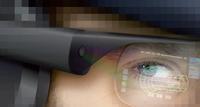Mittelstandspresse
09.04.2015
Increase productivity and effectiveness due to Augmented Reality
French eyewear manufacturer LASTER Technologies contracted image processing specialist FRAMOS for the development of its latest glasses.
Taufkirchen, 09.04.2015 (PresseBox) - Summary:
Customer: LASTER Technologies
Challenge: Design and development of a small, flexible camera for installation in smart glasses. Other requirements were a highly sensitive sensor, an easy mechanical integration, extended functionality, a serial interface for application programming, a low price and low minimum order quantity.
The result: The design and the implementation of customer requirements were met in only 3 months. The glasses deliver stable images with no blurring, and transmit data to the computer with no delay.
Smart glasses boom! They are exciting not just for consumers, who, for example, can use them to find where the next petrol station is or what is showing at the cinema around the corner. In the business environment, more and more companies are now employing this link between the real world and the superimposed information that comes from the computer; in other words: Augmented Reality, or AR. This technology is an ideal solution, particularly in production, assembly and maintenance – wherever people need to have free use of both hands. The Gartner market research institute predicted that companies could save approximately one billion dollars by 2017 as this eyewear facilitates diagnosis and repair and frequently lessens the need for the deployment of service engineers on site.
At the heart of the product range is the company‘s self-developed and patented optical SeeThru EnhancedView technology. SeeThru means that not only is information displayed on the glasses, but the user can also see through them like normal glasses. EnhancedView is regarded as the product with the best picture quality with an image resolution over 800x600 pixels. That is comparable to looking at a screen 2.70 metres in size (107 inch diag) from a distance of 3 metres.
To remain one step ahead, especially in the industrial market, specialists have to offer state-of-the-art products and the best solution portfolio. This is most in demand in sectors such as aviation, automotive, medicine and defence, where high accuracy is paramount. A good example of this is in applications where sensors are used to precisely comply with the individual customer requirements. In this example, global shutter CMOS cameras, provided by imaging specialist FRAMOS with the aid of development partners, have been producing significant value since July 2014. „FRAMOS offers us a ready-customised solution, with which a high-quality sensor designed for industrial use can be integrated in our products,“ explains Thierry Penet, Director of Sales & Marketing at LASTER. It was especially important to the company that the camera sensor should come with a focusable and replaceable lens (M12 Mount), an extremely stable image without shutter artefacts, and be low in noise. It also demanded low latency in the stream from the camera to the PC/display.
Previously, the French company had deployed an analogue, ultra-slim video NTSC camera. „This camera, however, needed a USB converter which converted the analogue VGA video stream into a digital one. In addition to requiring more space, this also produced a noticeably poorer image quality; what‘s more, most algorithms had great difficulty obtaining good tracking results,“ recalls Thierry Penet.
The greatest challenge for LASTER was to accommodate the camera in the smallest possible space. As we know, most smartphones today house small form factor cameras, but these are not suitable for reliable use in an industrial environment. A global shutter camera was required in order to avoid the blur effect - a common effect from mobile phone cameras when filming moving objects - as a global shutter controls the light that simultaneously falls on all pixels, allowing all pixels to either be simultaneously exposed to the light or shielded from the light, eliminating all distortion.
The experts did not make the selection process for the most suitable camera technology easy on themselves: „We examined a wide range of global shutter CMOS and rolling shutter cameras for industrial use. We based our criteria on a list of requirements which, in our opinion, was best satisfied by FRAMOS,“ explains Benoit Froissard, R-&-D engineer at LASTER. These criteria included the sensor, the mechanical integration, functionality, the interface for application programming, the price and minimum order quantity as only a small volume of the tailor-made cameras would be required for the prototypes, especially at the beginning of the project. „For us, the flexibility of FRAMOS‘s cooperation with us was important, as was their willingness to get involved in this development scenario,“ asserts Thierry Penet.
For FRAMOS, the most difficult part was designing the camera precisely for use in the special glasses. This challenge was resolved with the Aptina sensor MT9V024 and a specific serial interface that provided the connection between the glasses and the computer. The sensor impresses with its excellent pixel performance and image quality, exact colour reproduction, high light sensitivity and low noise. To ensure there was sufficient space, the head of the camera could be developed with only a few components and wires but still had to allow the camera the ability to turn. The software based on Microsoft Framework .Net programmed in C# - which FRAMOS had originally used - had to be ported to C/C++ to ensure LASTER could use it on the required Linux platform. The image processing specialist completed the design and implementation phases in just three months. LASTER is currently working with prototypes, but industrial production is set to start shortly. „We are extremely satisfied with our collaboration with FRAMOS: the reaction times are fast and the support is excellent. Our points of contact in the French subsidiary, in particular, helped us to jointly bring the project to a successful conclusion,“ reports Bennoit Froissard.
„With this solution, our customers can create their own applications and connect image processing with Augmented Reality algorithms. The camera records in real-time and the position of the camera is calculated in 3D thereby localising the user in his current task and environment. In this way, the right information is displayed at just the right time: this raises efficiency and therefore productivity,“ explains the sales manager. Customers of the smart glasses manufacturer use either software development kits from Augmented Reality suppliers or their own algorithms.
Many applications could benefit from for this solution. A current LASTER customer from the aeronautic industry uses the eyewear to provide its maintenance engineers with virtual product diagrams, floor plans and circuit diagrams - including handling instructions - of the part to be tested or repaired allowing the component or machine to be serviced reliably and with minimal errors. For very special repair jobs, this procedure can help lessen the expensive necessity of flying in experts to customer sites. LASTER’s customers from many sectors, including automotive, a wide range of industries, medicine and logistics, are using the eyewear technology to increase the effectiveness of their processes and to give their employees the best possible maintenance support.
With its new eyewear solution, LASTER wishes to appeal to additional target groups and markets, including security, defence, and sports, from France and Asia, to the Middle East and Africa. „The camera developed in cooperation with FRAMOS is creating an opportunity for us to provide a complete solution for areas where „data on the fly“ plays an especially vital role,“ concludes Thierry Penet.
Ansprechpartner
Werner Weber
+49 (89) 710667-13
+49 (89) 710667-66
Über FRAMOS GmbH:
For FRAMOS, image processing is not just a technical discipline, but a fascination, the future and our mission all at the same time. Since 1981 FRAMOS is a leading technology provider in industrial, scientific and medical image processing. Headquartered in Munich and with 5 subsidiaries worldwide we enable manufacturers, system integrators and researchers to benefit from imaging technologies. Our team of approximately 80 associates offers a fully comprehensive portfolio of imaging components, technical consulting and support. Thanks to many years of experience in the industry, we offer engineering services for custom camera development as well as complete turn-key-solutions. We are proud of our participation in a revolutionary technology. The spirit of innovation and development of our early days has remained at the heart of our company.
Datei-Anlagen:

(109 kB)
0737711.attachment
Increase productivity and effectiveness due to Augmented Reality

(306 kB)
0737712.attachment
Augmended Reality Applications

(90 kB)
0737713.attachment
Laster PRO Mobile 2
- Mehr Infos zu dieser Meldung unter www.pressebox.de
- zurück zur Übersicht
















